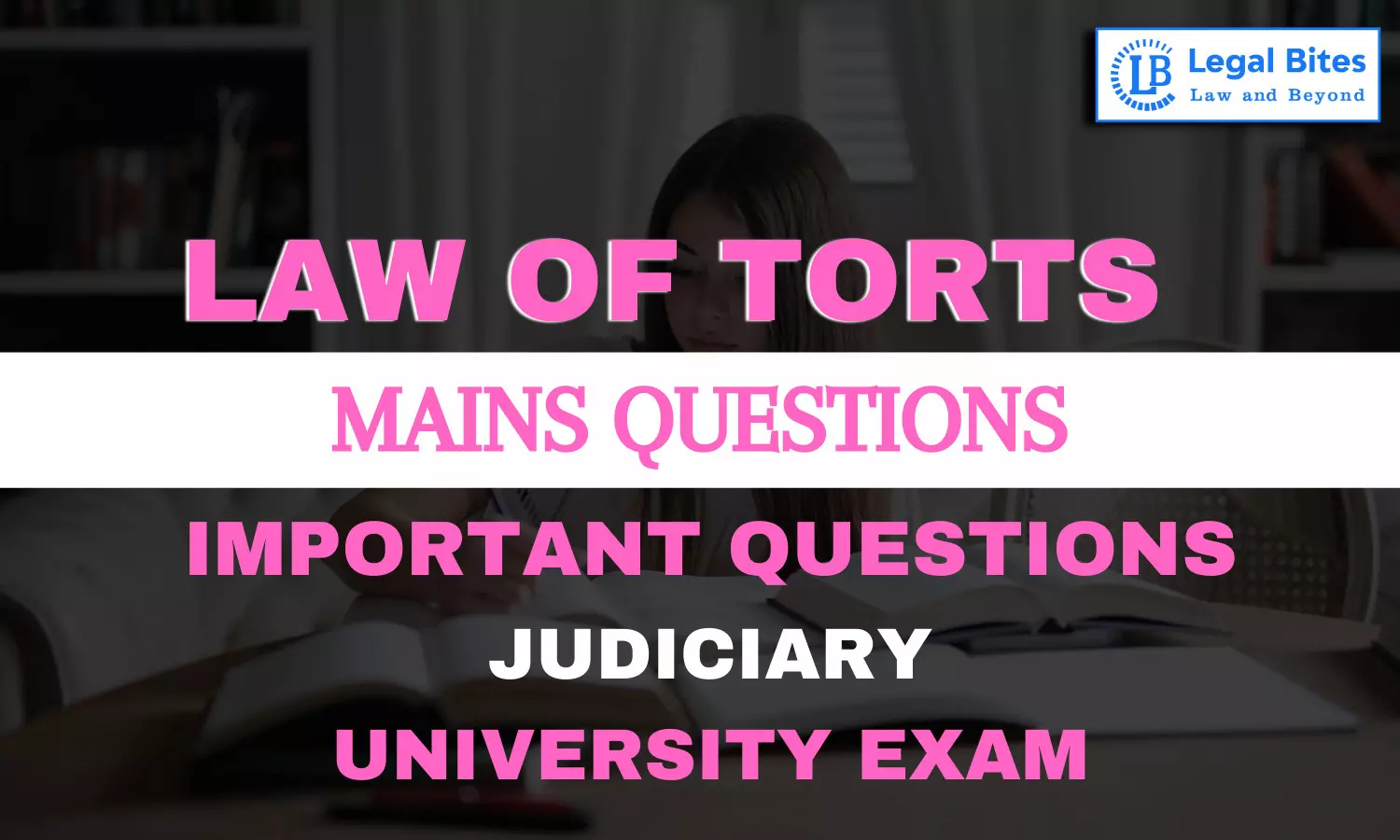"A statement made in performance of duty is privileged." In light of this statement, critically examine the tort of defamation.
Find the question and answer of Law of Torts only on Legal Bites.

Question: "A statement made in performance of duty is privileged." In light of this statement, critically examine the tort of defamation. [BJS 2018]Find the question and answer of Law of Torts only on Legal Bites. ["A statement made in performance of duty is privileged." In light of this statement, critically examine the tort of defamation.]AnswerDefamation is a tort that arises when a false statement is made about a person, which causes harm to their reputation. The tort of defamation can...
Question: "A statement made in performance of duty is privileged." In light of this statement, critically examine the tort of defamation. [BJS 2018]
Find the question and answer of Law of Torts only on Legal Bites. ["A statement made in performance of duty is privileged." In light of this statement, critically examine the tort of defamation.]
Answer
Defamation is a tort that arises when a false statement is made about a person, which causes harm to their reputation. The tort of defamation can be divided into two categories: libel and slander. Libel is defamation in written or printed form, while slander is defamation in oral form. In this context, the statement "a statement made in the performance of duty is privileged" refers to the concept of absolute privilege.
Absolute privilege is a defense against defamation that protects certain statements made by individuals in certain situations, regardless of whether the statements are true or false. In other words, absolute privilege provides complete immunity from liability for defamation. One of the situations where absolute privilege applies is when a statement is made in the performance of a person's duty. This means that certain individuals are protected from defamation claims when they make statements as part of their official duties.
For example, judges, witnesses, and legislators are all protected by absolute privilege when they make statements as part of their official duties. In these situations, the public interest in ensuring that these individuals can speak freely and without fear of reprisal outweighs the interest of the individual who may be defamed.
However, it is important to note that absolute privilege is a limited defense and does not apply to all situations. For example, statements made with malice or statements made outside of the scope of a person's official duties may not be protected by absolute privilege.
Case Laws
1. Lange v. Australian Broadcasting Corporation, (1997) 189 CLR 520
In this case, a politician brought an action for defamation against a television broadcaster. The broadcaster had aired a segment which included footage of the politician speaking at a public rally. The politician argued that the segment had been edited in such a way that it misrepresented his views.
The court held that the broadcaster was protected by absolute privilege because the segment had been aired as part of the broadcaster's duty to report on matters of public interest. The court also held that the politician had failed to establish that the broadcaster had acted with malice.
2. Australian Broadcasting Corporation v. Lenah Game Meats Pty Ltd., (2001) 208 CLR 199
In this case, a company that operated a possum abattoir brought an action for defamation against a television broadcaster. The company argued that the broadcaster had defamed it by airing footage that had been obtained by trespassing on its property.
The court held that the broadcaster was not protected by absolute privilege because it had obtained the footage by trespassing on the company's property. The court also held that the broadcaster had acted with malice because it had aired the footage despite being aware that it had been obtained illegally.
The tort of defamation can be a complex area of law, with various defenses available to defendants. Absolute privilege is one such defense that can protect individuals who make statements as part of their official duties. However, it is important to note that absolute privilege is a limited defense and does not apply to all situations.

Mayank Shekhar
Mayank is an alumnus of the prestigious Faculty of Law, Delhi University. Under his leadership, Legal Bites has been researching and developing resources through blogging, educational resources, competitions, and seminars.
